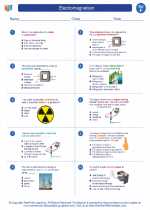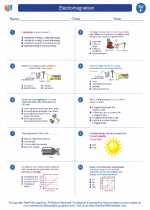Thyroid Gland
The thyroid gland is a small, butterfly-shaped gland located at the base of the neck. It is an essential part of the endocrine system, which is responsible for producing and regulating hormones that control metabolism, growth, and development.
Structure of the Thyroid Gland
The thyroid gland is made up of two lobes connected by a small bridge of tissue called the isthmus. It is composed of follicles that contain specialized cells called follicular cells, which produce the thyroid hormones T3 (triiodothyronine) and T4 (thyroxine).
Functions of the Thyroid Gland
The thyroid gland plays a crucial role in regulating the body's metabolism by producing hormones that control how the body uses energy. These hormones also play a role in regulating heart rate, body temperature, and the production of proteins.
Regulation of Thyroid Function
The production and release of thyroid hormones are controlled by the pituitary gland, which secretes thyroid-stimulating hormone (TSH) to stimulate the thyroid gland. TSH is in turn regulated by the hypothalamus, which secretes thyrotropin-releasing hormone (TRH) to signal the pituitary gland to release TSH.
Thyroid Disorders
Imbalances in thyroid hormone production can lead to various disorders, including hypothyroidism (underactive thyroid) and hyperthyroidism (overactive thyroid). These can cause symptoms such as fatigue, weight changes, and changes in heart rate.
Study Guide
Here are some key points to remember when studying the thyroid gland:
- What is the structure of the thyroid gland?
- What are the functions of the thyroid gland?
- How is the production of thyroid hormones regulated?
- What are some common thyroid disorders, and what are their symptoms?
Understanding the thyroid gland and its functions is important for understanding the endocrine system and the role of hormones in the body.
[Thyroid Gland] Related Worksheets and Study Guides:
.◂Science Worksheets and Study Guides Sixth Grade. Electromagnetism

 Activity Lesson
Activity Lesson
 Worksheet/Answer key
Worksheet/Answer key
 Worksheet/Answer key
Worksheet/Answer key
 Worksheet/Answer key
Worksheet/Answer key
 Vocabulary/Answer key
Vocabulary/Answer key
 Vocabulary/Answer key
Vocabulary/Answer key
